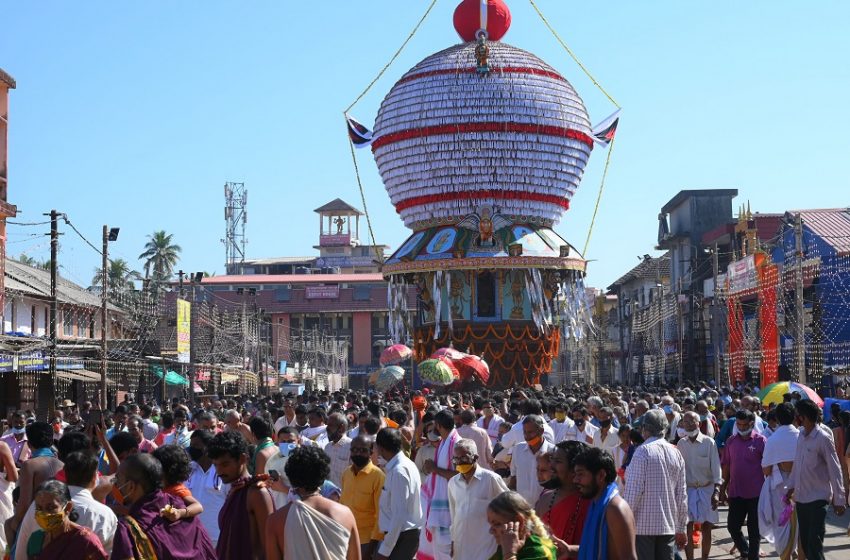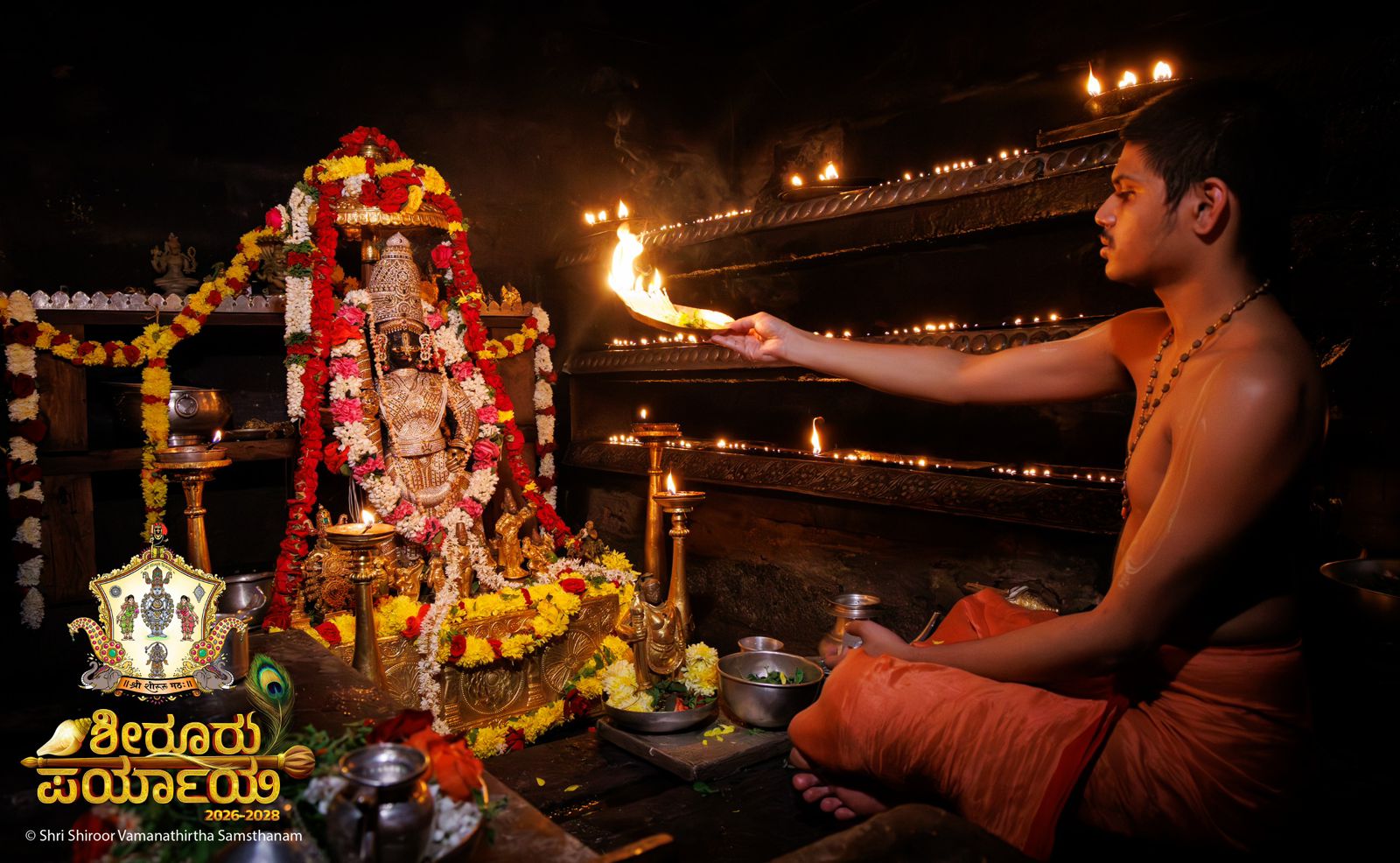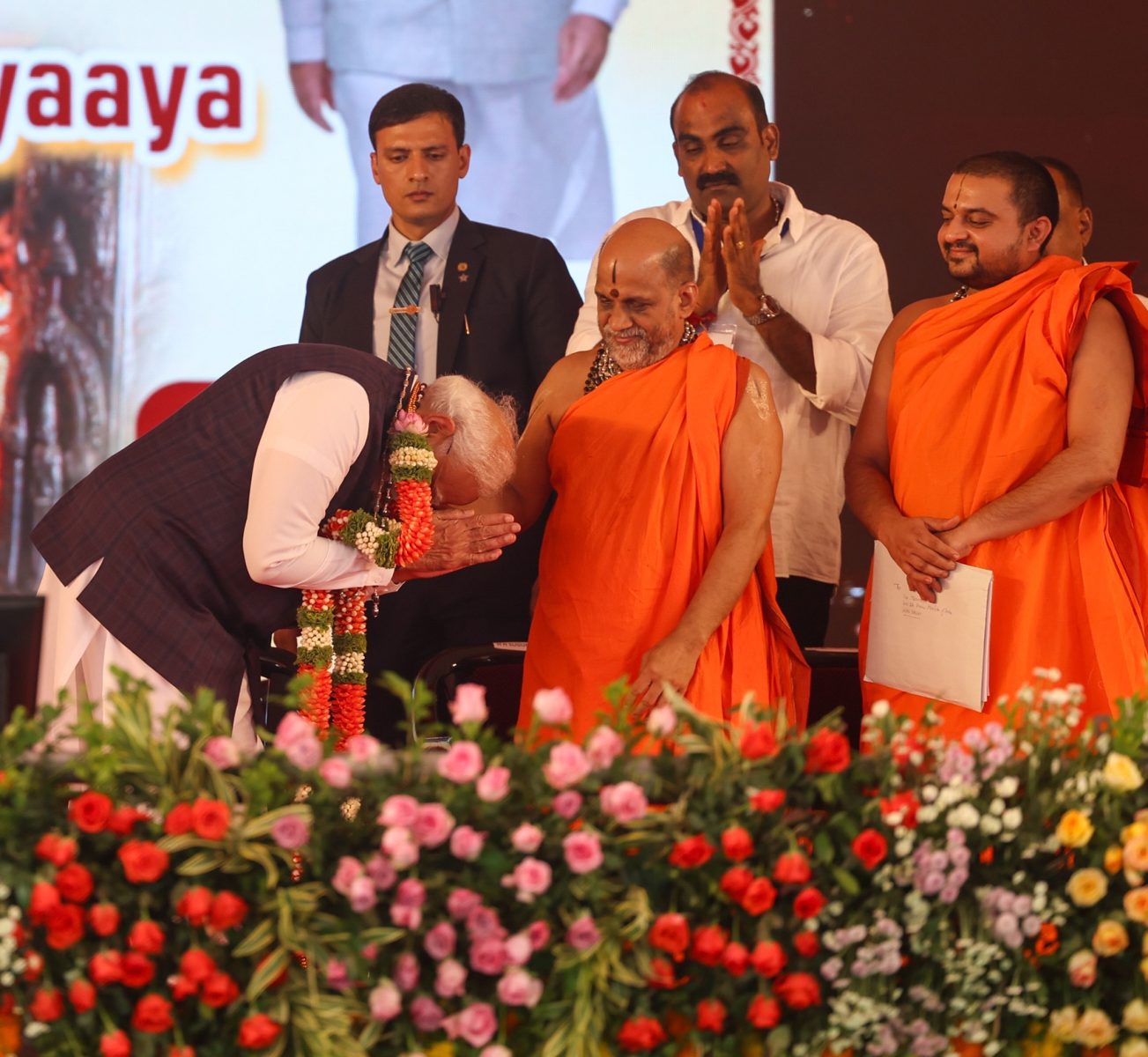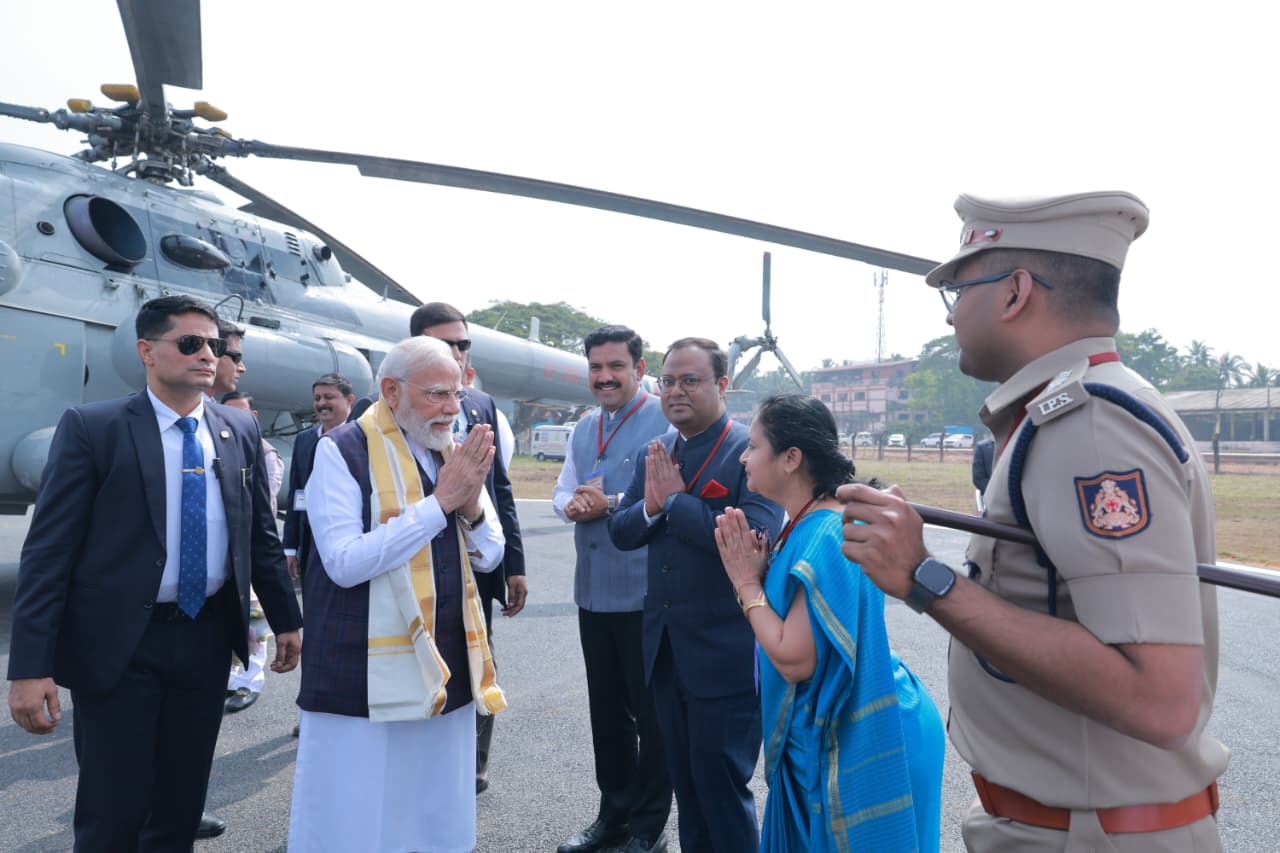When Ashwatthama attends Udupi’s Maha Anna Santharpane

Udupi, Jan 16, 2022: It is an interesting story that has come through generations in Udupi. From generation to generation the story continues and the keen eyes of children search for ‘Aswatthama,’ during the Churnotsava celebration at Udupi.
The story states that Ashwatthama, the son of Guru Drona, who is one among the seven Chiranjeevis, comes to have ‘Anna Prasada,’ during the ‘Maha Annasantharpane,’ held at Udupi Sri Krishna Matha on Churnotsava, the next day of Makara Sankranthi.
“Our grandmother used to tell that Ashwatthama, who is said to have developed ulcers and pus on his body due to the curse, comes to the Matha to have ‘anna Prasada.’ As kids, we used to search for people with wounds and ulcers. If we spotted some, we would be happy that we found ‘Ashwatthama,’ recollects Janardhan Ballal, a native of Udupi.
Whatever might be the story but the reason behind it seems to be that food has to be served to every person who comes to the Matha on Churnotsava.
Makara Sankranthi is the day when Sri Madhvacharya installed Sri Krishna at Udupi. A weeklong celebration was held as part of it. This is followed even to this day in the form of ‘Saptotsava.’ On the last day the grand ‘Maha Annasantharpane,’ is held.
Sri Madhvacharya, in his ‘Tantra Sara Sangraha,’ has clearly stated that food has to be served to every person, even those who eat dog meat (Aa shwabhya aa shwaapakebhyo dadyaadannam samastashaa…)
One of the reasons for this story might be to ensure that even the poor, unhealthy, people with diseases like leprosy and ulcers too are served food without any discrimination.
For the present generation serving food at the temples and Matha may not be a big deal. But just a few decades ago it had a great value. Even Mathas hardly had any resources. So the grand ‘Anna Santharpane,’ in a year was during Saptotsava and Churnotsava.
Be it a mythological story or belief or fact, the intention is clear- to follow Sri Madhvacharya’s message of serving food and nourishing the hungry.
The Palla Pooje marks the worship of rice which is served to the devotees who gather in large numbers.





